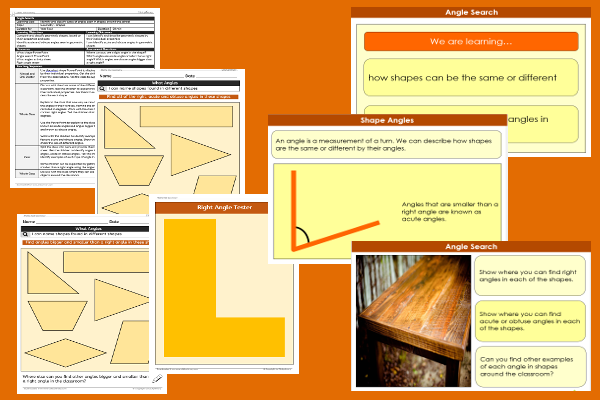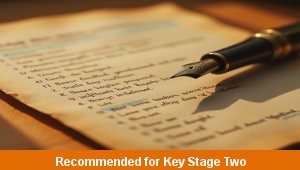Lesson One – Angle Search

This maths teaching pack for Key Stage Two gets the children to practise identifying and classifying some of the different types of angles that can be seen in a range shapes found around the school.
The class can explain and model how to use an angle tester to identify and categorise acute and obtuse example angles seen in shapes as smaller or bigger than a right angle.
Download this teaching pack including a lesson plan, classroom activities and an interactive presentation to practise identifying and classifying some of the different types of angles that can be seen in a range shapes found around the school
Activities in this teaching pack include a set of differentiated worksheets to find, record and classify some different types of angles that can be seen in different geometric shapes found in a range of special objects around the school by comparing them to a right angle.
The interactive presentation gets the children to explore how to identify and classify types of angles seen in different shapes found around the school.
This lesson is part of a maths scheme of work to get the children to investigate, record and compare the matching properties of different types of triangle shapes including their sets of right, acute and obtuse angles. There are teaching activities for shared learning, differentiated worksheets to support independent learning and interactive presentations to introduce concepts and key skills.
-

Length Calculations
Practise using number calculations skills for addition, subtraction, division and multiplication when solving problems related to length measurements
-

Maths Calculations Assessment
Assess abilities in solving a range of different number problems for addition and subtraction when working with informal and formal written calculations
-

Determinant Lists
Explain and model how to make lists of objects used and found in different locations to match the correct determinants of a and an
-

English SPAG Assessment
Assess abilities in composing sentences for fiction and non-fiction using the correct spellings, punctuation marks and grammar vocabulary phrases
